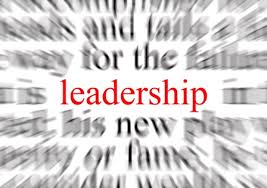The Seven Principles of Sustainable Leadership
The main responsibility that all education leaders have created a learning system that engages students intellectually, emotionally, and socially. Sustainable leadership therefore goes beyond the temporary gains in achievement scores to create long-lasting, meaningful improvements in learning processes. Let us look at the particular principles that define sustainable leadership:
1. Sustainable Leadership Lasts
One of the major characteristics of sustainable leadership is that it involves planning and preparing for succession – not just as an afterthought, but from the first day of the school leader’s appointment. Sustainable leadership requires that leaders pay serious attention to leadership succession. This can be achieved through grooming successors for them to continue with reforms, and keeping successful leaders in schools much longer, especially if they are making great strides in promoting learning. It also involves resisting the urge to search for “irreplaceable charismatic heroes” to become the saviors of schools, including succession in all district and school improvement plans, and slowing the rate of principal turnover.
2. Sustainable Leadership Spreads
A suitable way for leaders to leave a lasting legacy in their schools is to ensure that they share and help develop their vision with other school actors. Leadership succession in this sense therefore means more than grooming one’s successor. It actually means distributing leadership throughout the school through its professional community so that others can carry the torch of school improvement after the current principal is gone.
Sustainable leadership cannot just be the responsibility of one person. The school is a highly complex institution, and no one leader can control everything without assistance. In summary, sustainable leadership is and must be a shared responsibility, if it is to be carried out with success.
3. Sustainable Leadership Is Socially Just
Another aspect of sustainable leadership is that it aims to benefit all students and schools. Sustainable leadership is conscious of the fact that the magnet, lighthouse, and charter schools and their leaders effect surrounding schools. It is also sensitive to privileged communities “poaching” from the local leadership pool. Sustainable leadership recognizes and takes full responsibility for the fact that schools affect each other in interlinked webs of mutual influence. In this aspect, and in knowing the above facts, sustainability is tied to social justice.
Sustainable leadership is not just about maintaining improvement in one’s own school,. School leaders who truly care about sustainability should accept responsibility for the schools and students and be aware that their actions have an effect on the wider environment.
4. Sustainable Leadership Is Resourceful
The systems of sustainable leadership provide certain intrinsic rewards while at the same time offering external incentives that attract, motivate, and retain the best and brightest in the leadership pool. These systems provide time and opportunity for school leaders to network, support, and learn from one another, while at the same time coaching and mentoring their successors. Sustainable leadership carefully utilizes its resources to develop the talents of its educators, instead of lavishing rewards on selected proven leaders. The systems of sustainable leadership take care of leaders while encouraging them to take care of themselves. Eventually, leadership is only sustainable when it sustains the leaders themselves.
5. Sustainable Leadership Promotes Diversity
Leaders who promote sustainability prepare and recreate environments that stimulate continuous improvement on a broad level. They enable people to adapt and prosper in increasingly complex environments by learning from each other’s diverse practices. Most innovative schools create and promote this diversity.
Sustainable leadership does not impose standardized templates on entire communities.
6. Sustainable Leadership Is Activist
Standardization has increased the problems that traditional schools had. Moreover, formerly innovative schools have lost their edge. In an unhelpful environment, sustainable leadership must include some sort of activism. Leaders must be willing to pursue improvement for their schools, even if it means being labeled as difficult.
7. Systems Must Support Sustainable Leadership
Most inspiring school leaders do more than manage change – they actively pursue and model a form of sustainable leadership. The measure of developing sustainability is the commitment to and protection of deep learning in schools by attempting to ensure that school improvements last over time, especially after the charismatic leaders have left. by distributing leadership and responsibility, considering the impact of their leadership on schools and communities in their neighborhood, avoiding stress and burnout, promoting and bringing about diverse approaches to school reform , and activism, leaders develop sustainability.
While most school leaders want to achieve the goals that matter and inspire others so as to leave a lasting legacy, they are often not responsible for their school’s failure. Most of the blame rests with the systems in which they lead. To institute change that matters, spreads, and lasts, we must ensure that the systems in which leaders work make sustainability a priority.




